Our Team
Project Director
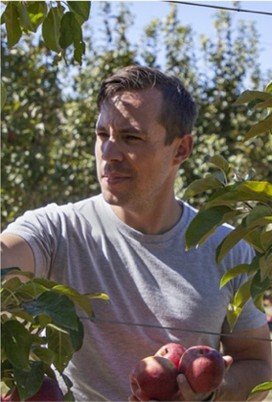
Lee Kalcsits
Dr. Lee Kalcsits is an Associate Professor of tree fruit physiology in the Department of Horticulture at the Washington State University Tree Fruit Research and Extension Center in Wenatchee, Washington, USA. He serves as the Endowed Chair of Tree Fruit Environmental Physiology and Programmatic Lead at the WSU Wenatchee Tree Fruit Research and Extension Center. His research program works towards understanding the physiological interactions between environment, horticultural management and genetics of apple, pear, and sweet cherry.
Project Co-Director
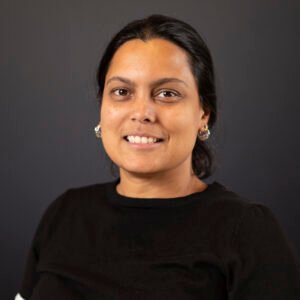
Kirti Rajagopalan
Kirti Rajagopalan is an Assistant Professor in the Department of Biological Systems engineering with a research focus on securing sustainable agricultural ecosystems amidst the challenges of a growing population, changing climate, and limited natural resources. Her Sustainable Environments and Agricultural Systems (SEAS+) laboratory explores the nexus between agriculture, resource management, and environmental preservation. The lab develops and applies biophysical modeling, science-guided data driven approaches, and data assimilation techniques to understand complex model behavior, develop forecasts to inform agricultural and water management decisions, and develop “what-if” scenarios for data- and science-informed policy making.
Project Co-Director
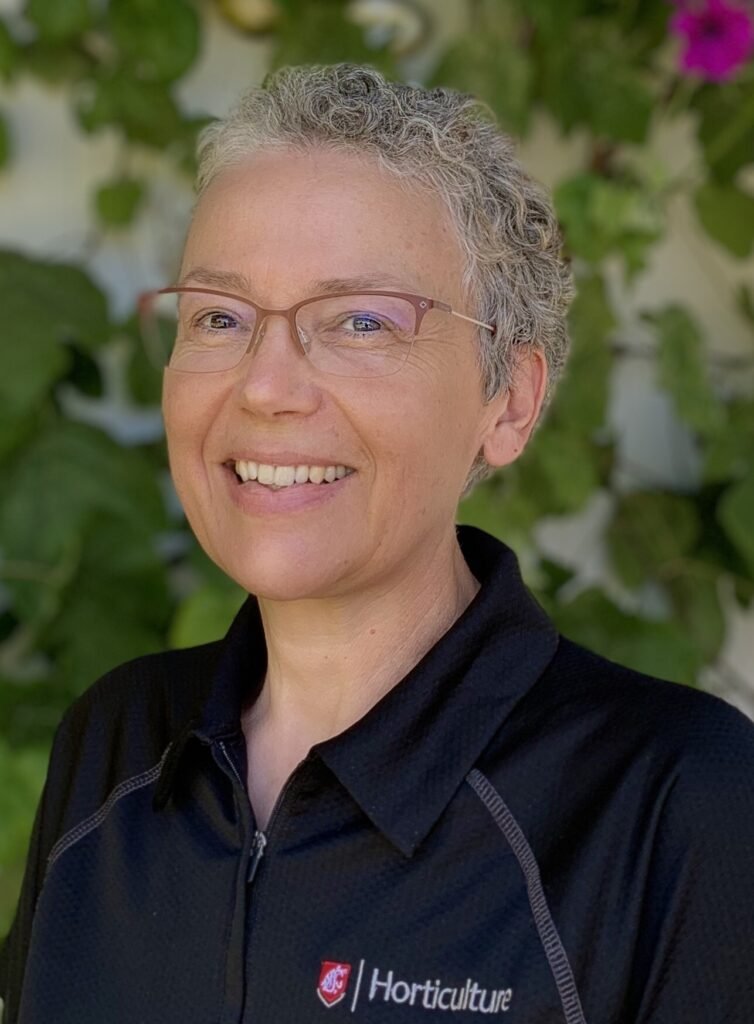
Kate Evans
Dr. Evans leads WSU’s pome fruit breeding program which released the WA 38 (Cosmic Crisp®) apple, and is based at the Tree Fruit Research and Extension Center (TFREC), Wenatchee. She joined WSU in 2008 following 16 years as a researcher/senior researcher at East Malling Research in the UK. Dr. Evans achieved tenure in 2013 and was promoted to Professor in 2016. She has released 8 apple varieties, 2 pear varieties, 1 apple rootstock and 1 rootstock for pear, 76 peer-reviewed publications, 6 book chapters and edited a book on apple published in 2017. Dr. Evans teaches a graduate class in Research Orientation and Presentation annually. She served as chair of the U.S. Plant Breeding Coordinating Committee in 2017/18. She was awarded the WSU College of Agriculture, Human and Natural Resource Sciences ‘Land Grant Mission’ Award in 2019 and the American Pomological Society Wilder medal in 2024.
Project Co-Investigators
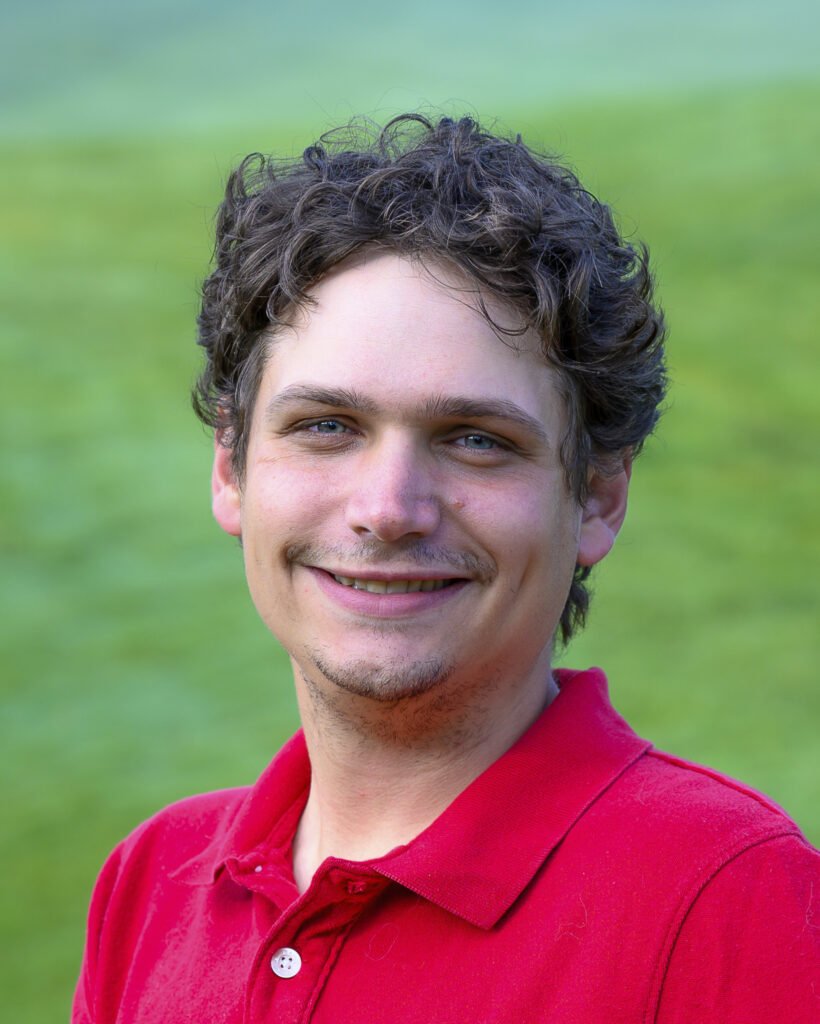
Mike Basedow
Mike Basedow is a tree fruit specialist with the Cornell Cooperative Extension’s Eastern New York Commercial Horticulture Program (ENYCHP). Mike delivers educational programming and conducts on-farm research trials relevant to orchards across Eastern New York. He is based in the Champlain Valley, and his programming primarily focuses on thinning practices, weed management, soil quality, and general pest management. He also works with beginning orchardists and cider orchards.
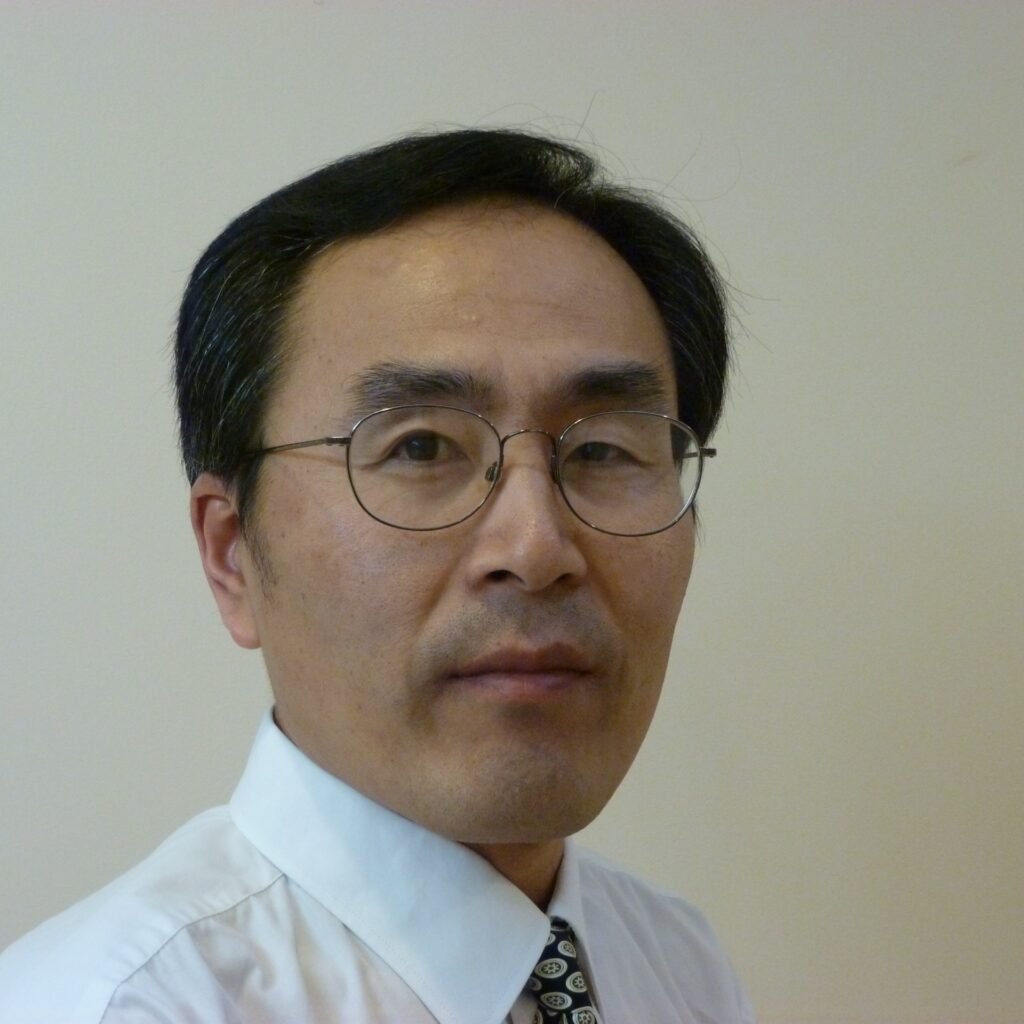
Lailiang Cheng
Lailiang Cheng is a professor of fruit crops in the Horticulture Section of the School of Integrative Plant Science at Cornell University. He received his Ph.D in horticulture from Oregon State University in 1999. His earlier work was focused on photosynthetic carbon metabolism in relation to nitrogen and environmental stress physiology of apple. More recent work includes sugar metabolism, transport and signaling that underpin sugar accumulation in apple, malic acid metabolism and its intracellular transport that underlies fruit acidity, and the phenylpropanoid pathway that controls the synthesis of anthocyanins for fruit color development and other important health-promoting phenolic compounds. On the applied side, he works on tree mineral nutrition in relation to rootstock and nutrient supply for effective orchard nutrient management to improve tree productivity and fruit quality and reduce fruit physiological disorders.
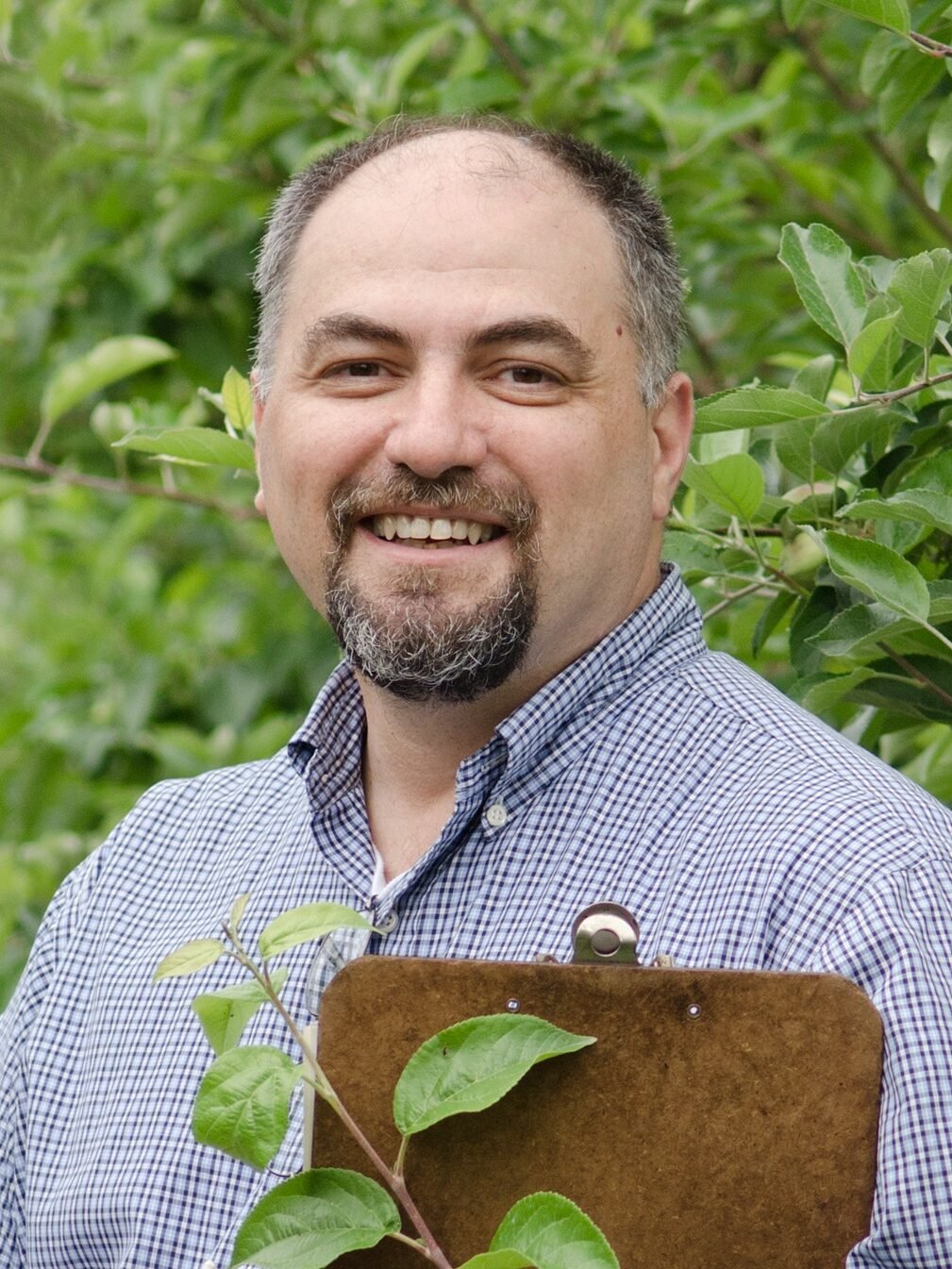
Gennaro Fazio
Gennaro Fazio is a plant breeder and research geneticist with the USDA-ARS Plant Genetic Resources Unit in Geneva, NY. His research focuses on the development of new apple rootstocks that are more productive than current commercially available varieties and are more resilient to devastating diseases like fire blight and replant disease as well as abiotic stresses associated with a changing climate.

Ananth Kalyanaraman
Ananth Kalyanaraman is a Professor, Boeing Centennial Chair, and Interim Director at the School of Electrical Engineering and Computer Science, Washington State University in Pullman. He is the lead PI and the Director of the NSF-USDA NIFA AgAID AI Institute for Transforming Workforce and Decision Support in agriculture. Ananth works at the intersections of parallel computing, graph analytics, and bioinformatics/computational biology, and at the intersections of data science and AI/machine learning for real-world applications. His focus is on developing algorithms and software for scalable analysis of large-scale data from various scientific domains and particularly agriculture, plant and life sciences. Research in his lab has been supported by various funding sources including the National Science Foundation (NSF), U.S. Department of Energy (DOE), U.S. Department of Agriculture (USDA), and the Center for Disease Control and Prevention (CDC).
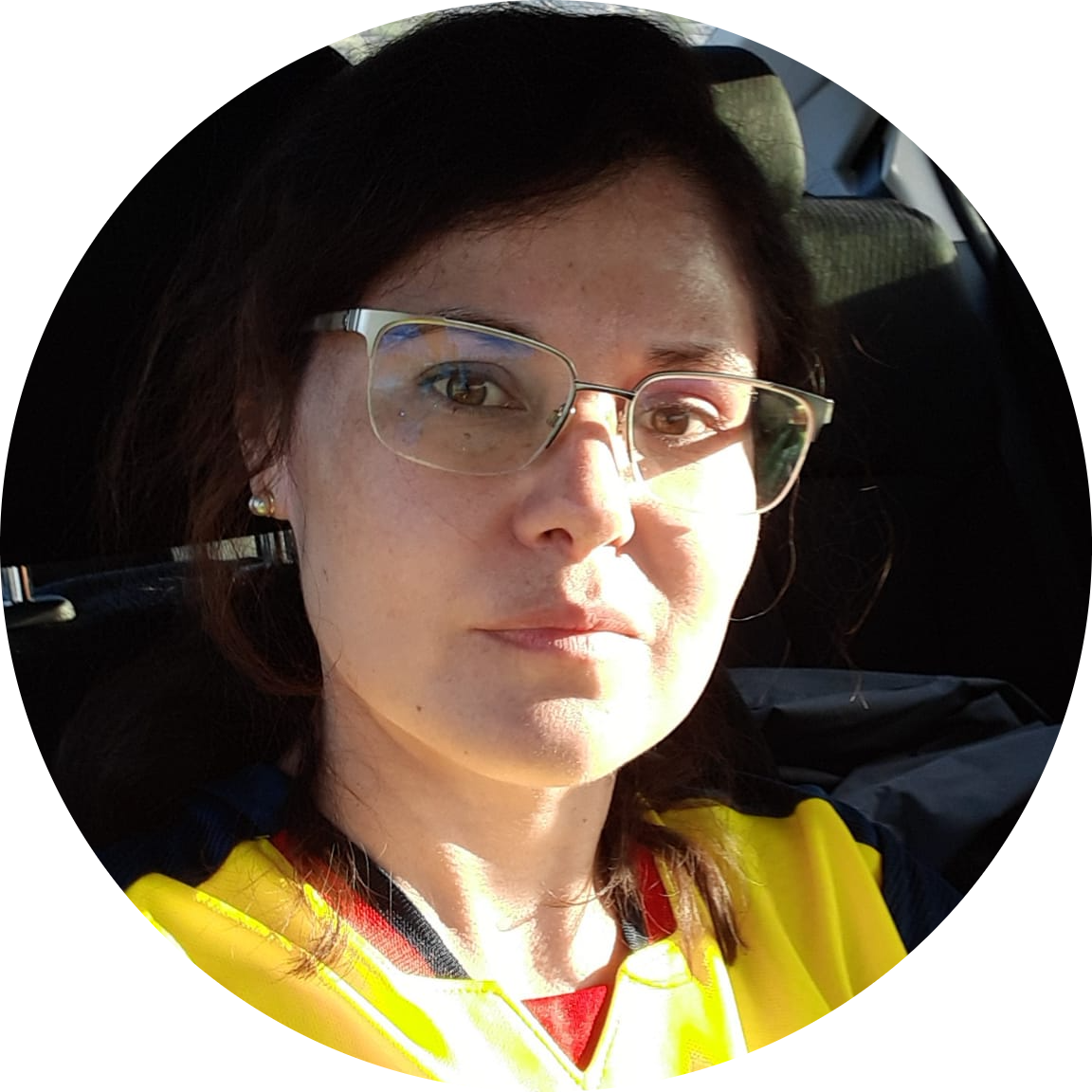
Paola Pesantez-Cabrera
Paola Pesantez-Cabrera is a Research Assistant Professor in the School of Electrical Engineering and Computer Science at Washington State University. She is also the data manager/scientist for the AgAID Institute – AI for Transforming Workforce and Decision Support in Agriculture and the Washington Soil Health Initiative (WaSHI). Her research focuses on the development of data-driven decision support tools through the application of FAIR data principles and the use of artificial intelligence and machine learning with a direct impact on agriculture and its environmental and economic sustainability. She is an avid advocate of accessible education, the generation of knowledge, respect for diversity and the visualization and engagement of Latin American women in STEM, which is why she is also a member of SACNAS, Women in Analytics and the Association of Data Scientists.
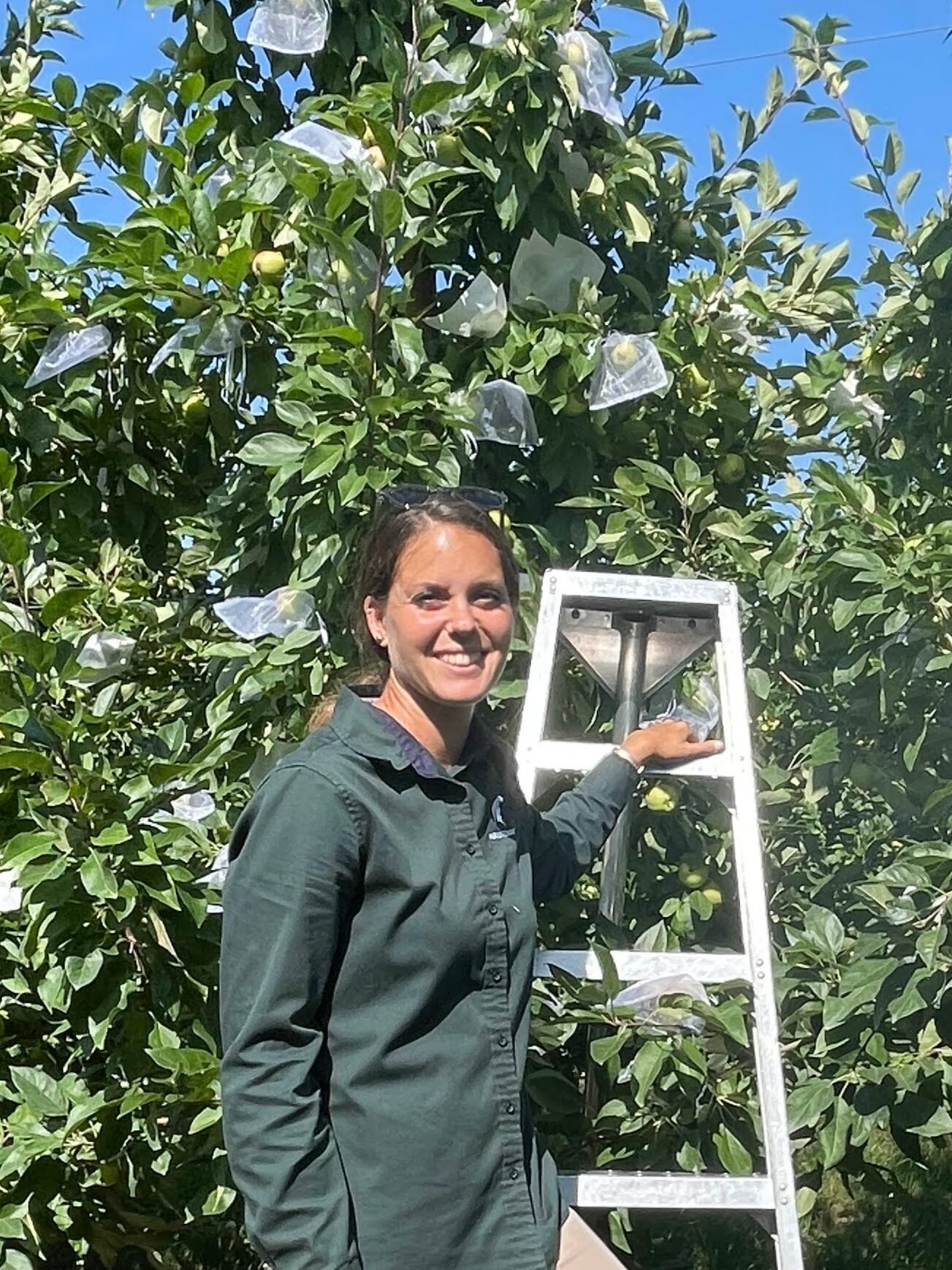
Emily Lavely
Emily is the Tree Fruit Educator for West Central Michigan with Michigan State University Extension. She works with other extension educators, specialists, and industry partners to support production of peaches, cherries, apples, and pears. Her work is primarily focused in West Michigan and at the West Central Michigan Research and Extension Center in Hart, MI. Emily supports the tree fruit industry by providing research-based information and educational programming for horticulture and pest management topics related to rootstocks and variety evaluations for fresh market and processing, training systems, irrigation scheduling, fruit quality, and soil health.
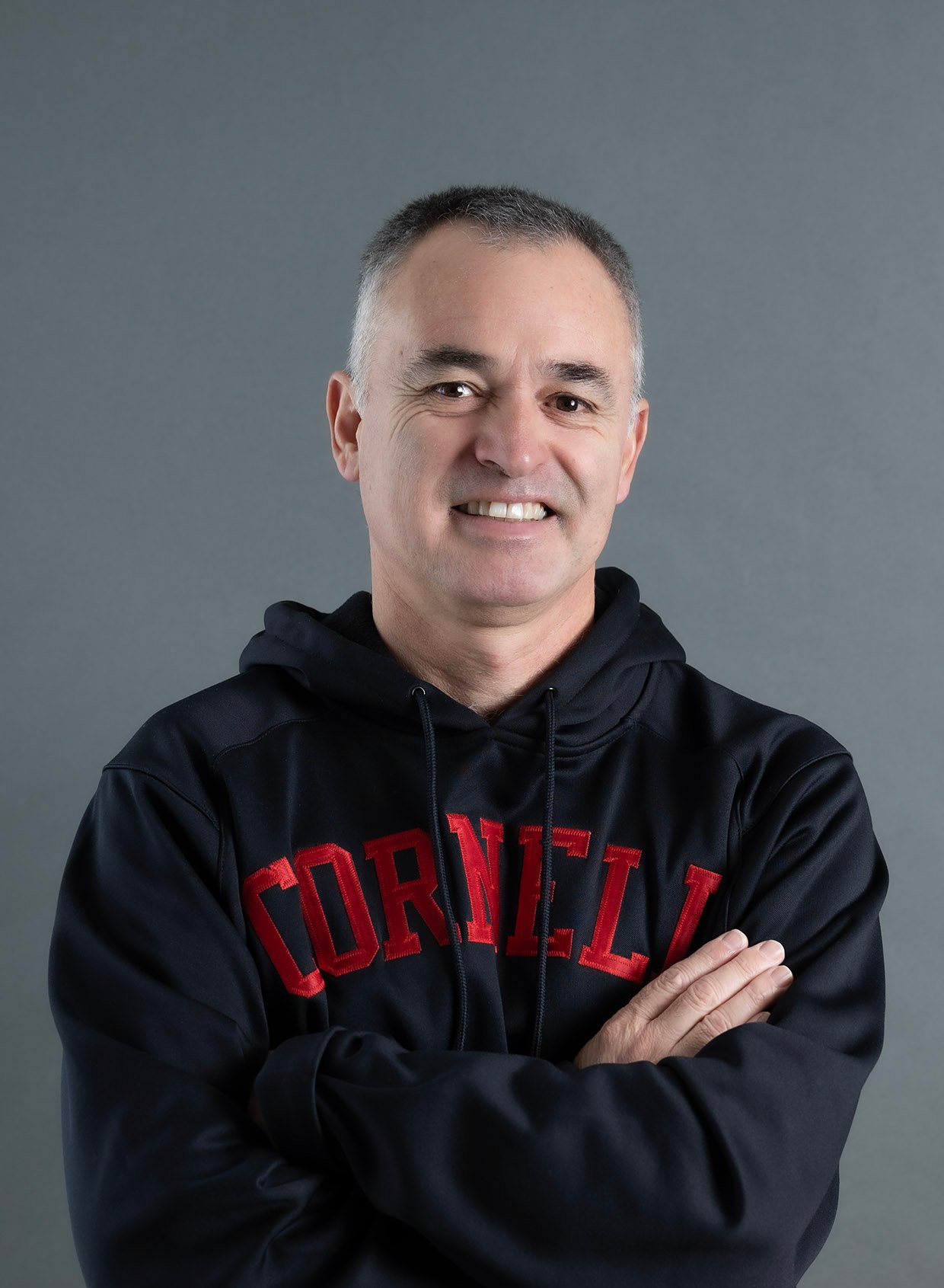
Mario Miranda-Sazo
Mario is a Fruit Extension Specialist with Cornell Cooperative Extension, Lake Ontario Fruit Program. He manages several projects aimed at solving practical fruit production problems that will increase the profitability of the NY fruit industry. His program is largely field oriented with significant Extension outreach. He works in nine areas: (1) orchard systems, (2) rootstocks, (3) tree nursery production, (4) tree training/pruning/PGR use, (5) crop load and canopy management, (6) irrigation/foliar/soil nutrient management, (7) orchard mechanization for higher labor efficiency, (8) Spanish-speaking training, and (9) strategic thinking and innovation for adoption of digital agriculture technologies. Before Mario joined Cornell, he worked as a product development manager for BASF in Latin America, Harris Moran Seed Company in California, and managed the IR-4 field residue program at the Department of Horticulture, Cornell University. His academic training is in agronomy (B.S.) and in horticulture and agronomy (M.S.), UC Davis. He is currently pursuing a Ph.D. degree on nutrition physiology and management at Cornell University.
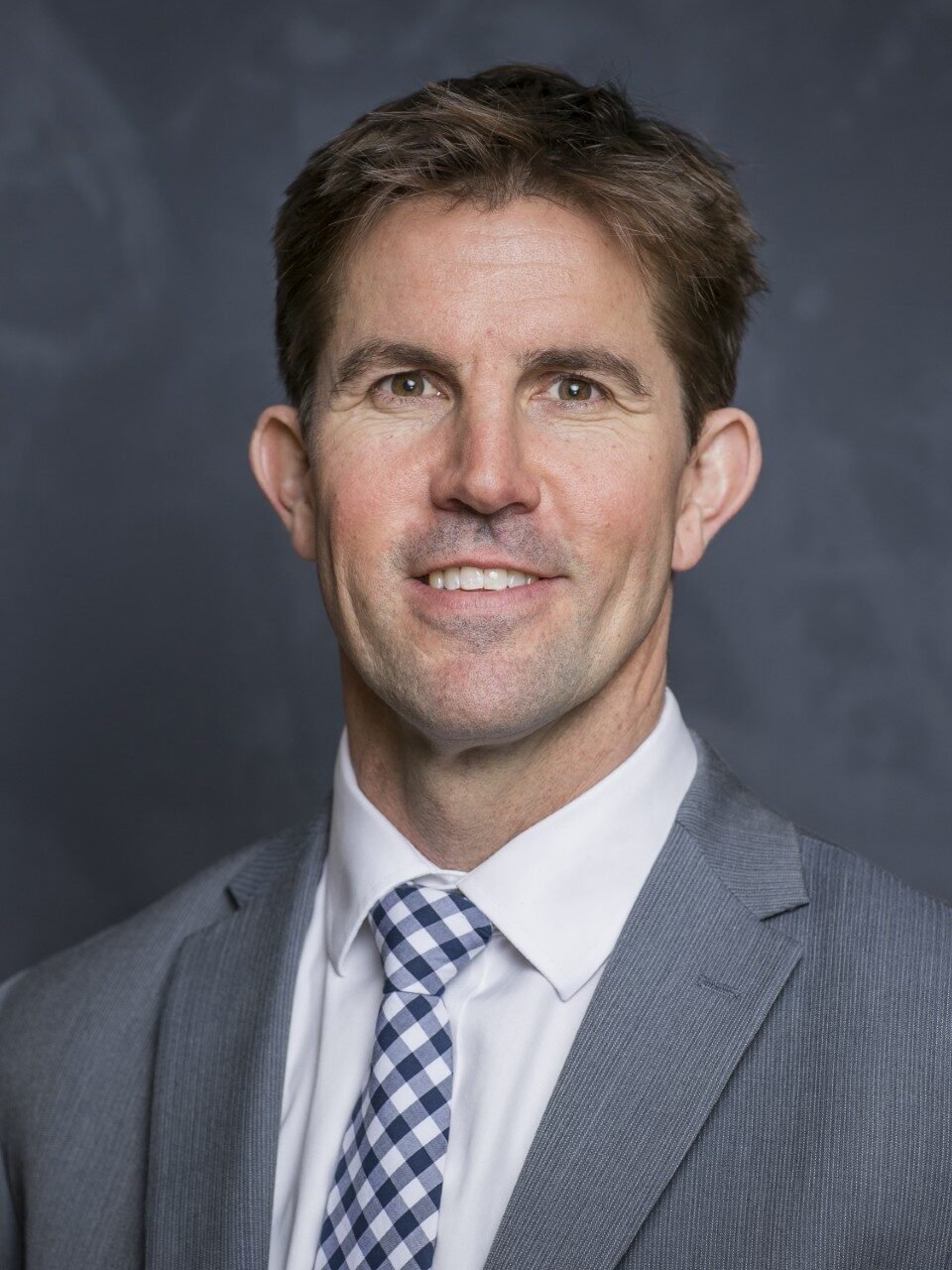
Bradley J. Rickard
Bradley J. Rickard is a Professor of Food and Agricultural Economics in the Charles H. Dyson School of Applied Economics and Management at Cornell University. He earned his Ph.D. in agricultural and resource economics from the University of California and previously taught in the Agribusiness Department at Cal Poly, San Luis Obispo. Bradley grew up on a 1200 acre family farm in Southern Ontario (Canada) that produces apples, processing vegetables, edible beans, and a variety of seed grain crops. Bradley has published widely in the area of food and agricultural economics, with a specific interest in addressing contemporary marketing and policy issues in specialty crop markets. Recent work has examined consumer response to changes in nutrition and health information, food labeling practices, promotional efforts, the role of information on food waste patterns, agricultural policy reform, and the introduction of new technologies. Bradley is also a co-Editor for the Journal of Wine Economics.
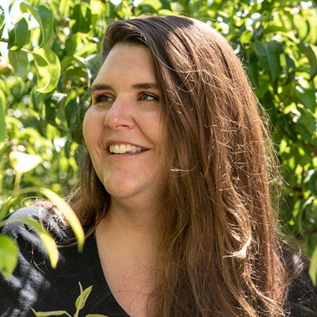
Ashley Thompson
Dr. Ashley Thompson is an Assistant Professor of Horticulture at Oregon State University and the extension horticulturalist for Wasco and Hood River Counties. She holds a Ph.D. in Horticulture from Virginia Tech, a M.S. in Ecology and Environmental Science from the University of Maine, and B.S. in Biology from Susquehanna University. Ashley is passionate about working with tree fruit producers and her research focuses on ways to make Oregon’s cherry and pear producers environmentally and economically sustainable.

Kenong Xu
Dr. Kenong Xu is an Associate Professor of tree fruit genomics in the Horticulture Section at Cornell University. His research program focuses on the identification of genes and/or gene-networks controlling apple traits of economic and horticultural importance. Dr. Xu’s research work in understanding apple fruit acidity was recognized with a (US) Presidential Early Career Award for Scientists and Engineers. His early accomplishments in uncovering the genetic and molecular mechanisms of rice submergence tolerance were awarded with a Science Award from the Consultative Group on International Agricultural Research (CGIAR) and an Economic Development Award from The Tech Awards. Dr. Xu received his BS and MS degrees in China and PhD degree in genetics from University of California, Davis.
Todd Einhorn
More information coming soon!

Kelsey Galimba
Dr. Galimba is an Assistant Professor of Tree Fruit Horticulture that specializes in sustainable sweet cherry and pear cultivation systems in the Mid-Columbia region. Her program identifies methods to improve yield and fruit quality to enhance profitability, efficiency, and competitiveness of fruit tree growers. Efforts of Dr. Galimba’s program have resulted in the development of a sweet cherry cold-hardiness model to help mitigate frost risk, advancements in physiology-based methods to detect and manage cherry X-disease, and the identification of quince rootstocks that impart both dwarfing and precocity to pear. In addition, Dr. Galimba is leading ongoing evaluations of novel pear and cherry rootstocks, cultivars, and pollinizers to help meet the current and future needs of tree fruit growers.
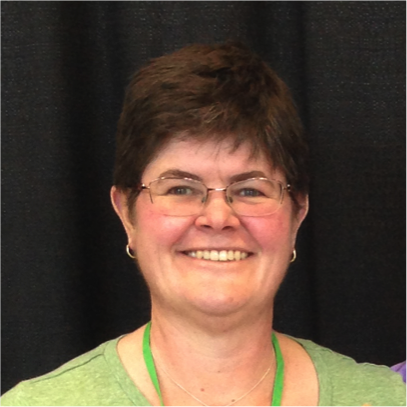
Sonia Hall
Sonia works with research teams to share their results with our clientele: producers, decision-makers, legislators, regulatory and government agencies, NGOs and agricultural professionals. Her focus is well aligned with her passion for working at the interface of science and decision-making so that research addresses key questions, and our results inform natural resource management decisions at all levels. Sonia joined WSU’s Center for Sustaining Agriculture and Natural Resources in November 2014 after working eight years in habitat conservation in eastern Washington. Since then she has worked on water supply and demand, rangelands management, and climate change impacts on the Pacific Northwest’s diverse agricultural systems. Sonia earned her B.S. from the School of Agronomy at the University of Buenos Aires, Argentina, and a Ph.D. in Ecology from Colorado State University. A lover of big open skies, she is committed to working with researchers and decision-makers to improve the use of science as a way of achieving sustainable use of natural resources in a changing world.
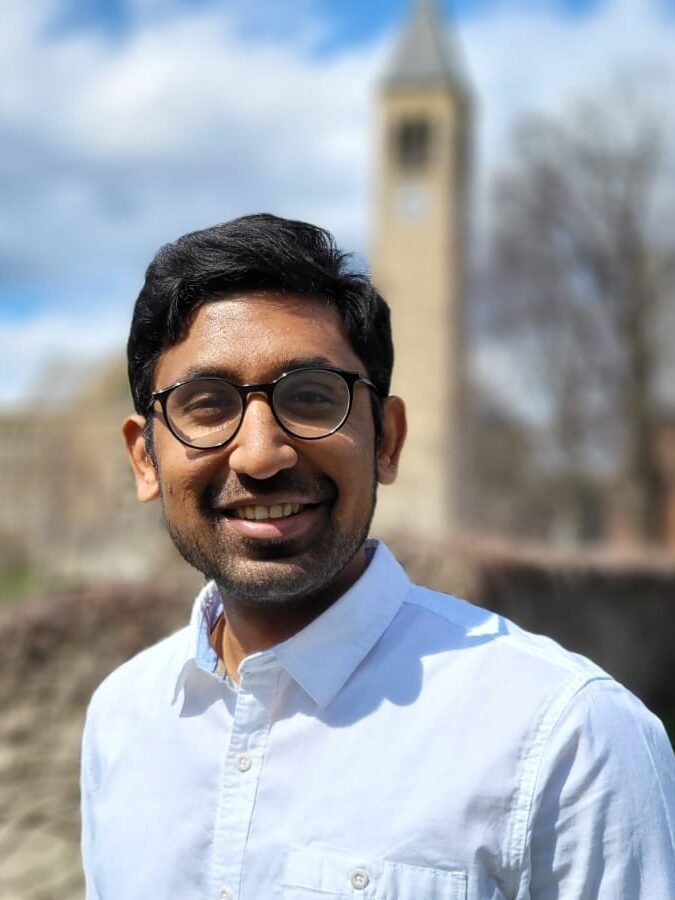
Shanthanu Krishna Kumar
Shanthanu Krishna Kumar is an assistant professor of Tree Fruit at The Pennsylvania State University’s main University Park campus, where his appointment is divided among 75% extension, 20% research, and 5% teaching. He leads a dynamic lab dedicated to crop load and fruit quality management, and he has published more than 20 research and extension articles. Shanthanu also instructs HORT 432, “Sustainable Tree Fruit Production,” inspiring future horticulturists with practical, research-based insights. As a key member of the SPARC program, he is trialing freeze tolerance materials for flower bud protection in apples and peaches while exploring innovative approaches to improve apple color.

Jason P. Londo
Dr. Jason P. Londo is an Associate Professor of Horticulture at the School of Integrative Plant Science, Horticulture section at Cornell University. He leads the fruit physiology and climate adaptation program on the Cornell AgriTech campus. His research uses a combination of field, greenhouse, and molecular approaches to understanding the effect of temperature on winter dormancy and cold hardiness physiology, phenology, and growing season fruit ripening processes. Applied science approaches include testing of plant growth regulators, foliar fertilizers and amendments as a mitigation mechanism for stimulating winter acclimation, extending dormancy, delaying budbreak, and reducing fruit quality disorders. Additionally, his program uses transcriptomic and epigenomic approaches to understanding plant acclimation and phenotypic plasticity. Finally, Dr. Londo’s position is a 60/40 split of research and extension. Extension activities range from the development of cold hardiness prediction models and associated web-based applications to in depth fruit schools designed for reciprocal knowledge transfer between researchers and growers.
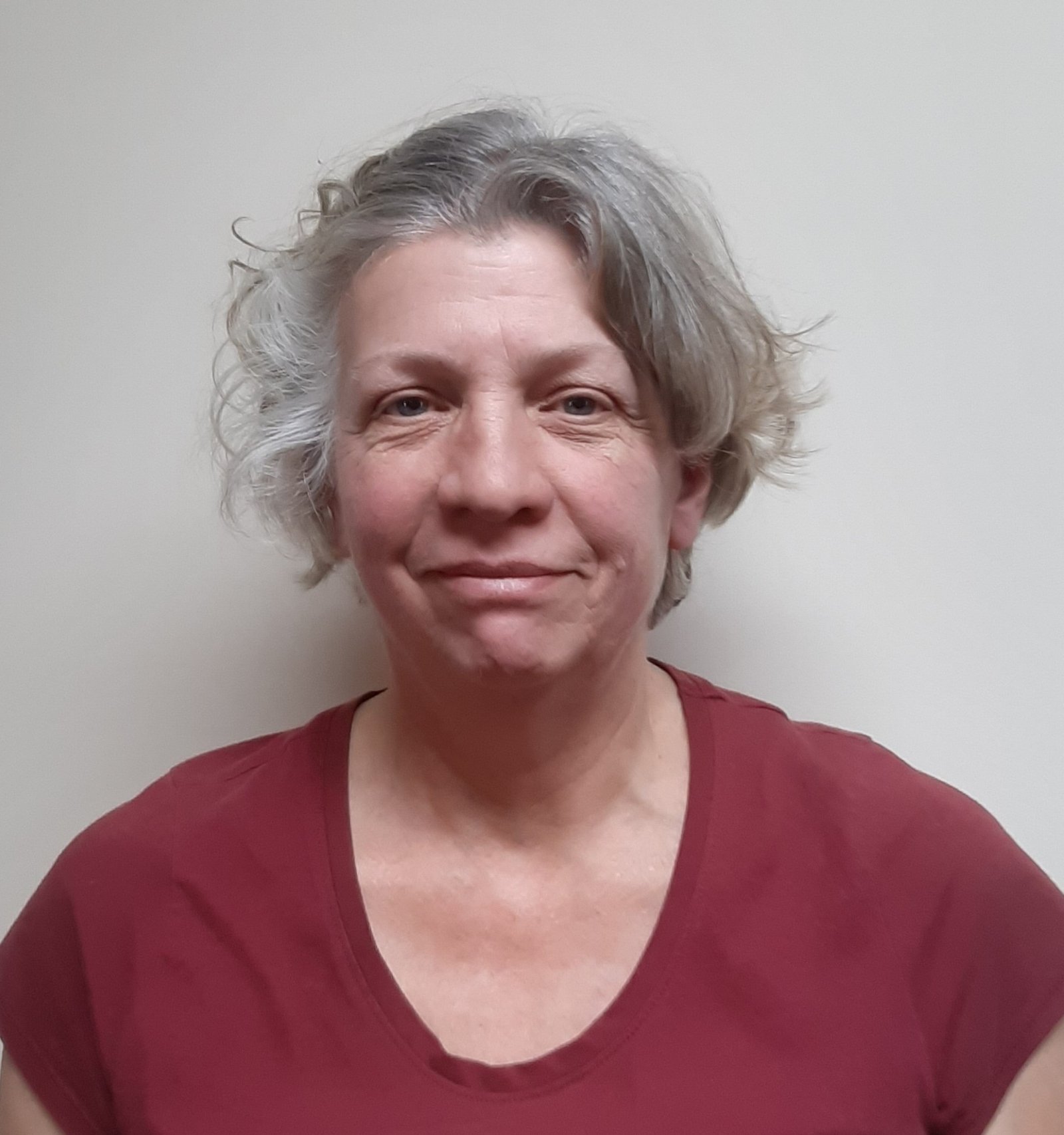
Renae Moran
Renae Moran is a tree-fruit specialist with the University of Maine’s School of Food and Agriculture. In her research, she aims to solve problems such as nutritional deficiencies in Honeycrisp apples and lack of cold hardiness in peach varieties. She is currently working on a method to predict and prevent fruit losses in cold storage in order to reduce food waste in the supply chain. In addition, she is currently breeding new peach varieties with greater winter hardiness, and hopes that one day, Maine will have a thriving peach industry. She also works for Extension service providing research-based knowledge to Maine’s apple and peach growers.
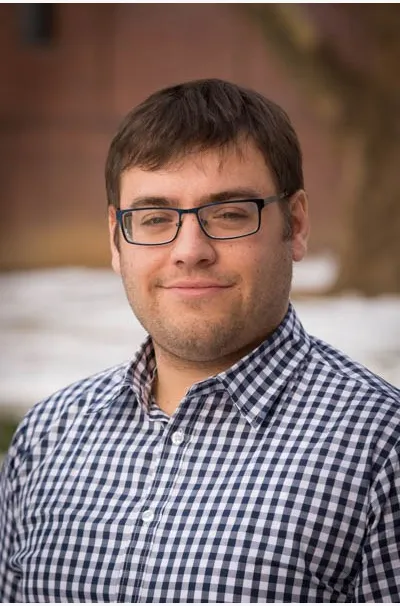
Donald Seifrit
Donald Seifrit is an Extension Educator with Penn State Extension. He started with Extension in 2018. He has a BS and MS in Plant Science from the University of Delaware. Don’s work focuses on the horticultural aspects of fruit production and tree health. He lives in Pottstown, PA with his wife and daughter.
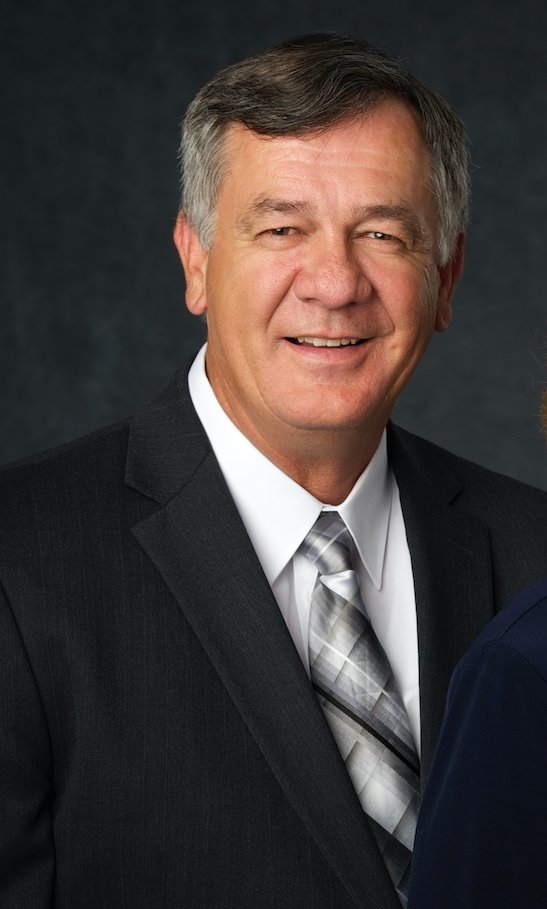
Terence Robinson
Terence Robinson is a research and extension Professor of Horticulture at Cornell University located at the Cornell AgriTech Campus in Geneva, New York State. His research program is aimed at developing advanced orchard management practices to improve yield, fruit quality and profitability of apple, cherry, peach, and pear orchards. His areas of specialization are light interception and utilization, orchard planting systems, rootstocks, economics of high-density orchards, pruning and training, precision crop load management, and irrigation. He is the co-leader of Cornell’s apple rootstock program. He received his BS degree in Agronomy and Horticulture from Brigham Young University in 1978 and his MS and PhD degrees in Horticulture from Washington State University in 1982 and 1984 and has been at Cornell for 41 years. He has published 230 scientific publications, given 250 presentations at scientific conferences, published 400 articles for fruit growers and given more than 1000 presentations to fruit grower groups. He has contributed his expertise in fruit production in more than 20 countries.

Jessica Waite
Dr. Jessica is a molecular biologist and geneticist located at the USDA ARS in Wenatchee, WA. In addition to heat and cold stress in pome fruit, her lab focuses on pear root development and architecture, rootstock-scion interactions, cultivar specific responses to plant hormones, and development of genomic and biotechnological tools. Her research background includes hormone signaling in model and applied systems, understanding the molecular basis of tree architecture, and determining physiological and molecular pathways of heat stress in apple fruit. She strives to make her lab a safe and welcoming environment for scientists of all experience levels to design and carry out exciting research on plant biology.
Key Personnel and Support Staff
Washington State University
- Jae-Yun Heo, Visiting Scientist
- Rebecca Schmidt, Project Manager
Oregon State University
- Santosh Kalauni, Faculty Research Assistant
- Travis Monahan, Research Technician
Pennsylvania State University
- Lindsay Brown, Research Technician
Postdoctoral Scholars and Graduate Students
Washington State University
- Chris Cook, Postdoctoral Research Assistant
- Alicia Mehling, Masters Student
Michigan State University
- Sangeeta Sapkota, Postdoctoral Research Assistant
Pennsylvania State University
- Devansh Gupta, Masters Student
SPARC Advisory Group
Stakeholder Advisory Committee
- Don Armock, Riveridge Orchards, Grand Rapids, MI
- Suzanne Bishop, Allan Bros Fruit Co., Naches, WA
- Dr. Rob Blakey, Stemilt, Wenatchee, WA
- Dr. Rachel Elkins, University of California Cooperative Extension, Lakeport, CA
- Ted Ferber, Cherry Lawn Farm, Hudson Valley, NY
- Justin Finkler, Riveridge Orchards, Grand Rapids, MI
- Dr. Ines Hanrahan, Washington Tree Fruit Research Commission, Yakima, WA
- Byron Philips, Wilbur-Ellis, Wenatchee, WA
- Jay Toohill, Chazy Orchards, Champlain Valley, NY
Scientific Advisory Committee
- Mike Basedow, Cornell Cooperative Extension, Plattsburg, NY
- Dr. Susan Brown, Cornell University, Geneva, NY
- Dr. Rob Crassweller, Penn State University, State College, PA
- Dr. Rachel Elkins, University of California Cooperative Extension, Lakeport, CA
- Dr. Alan Fern, Oregon State University, Corvallis, OR
- Dr. Jonathan Fresnedo-Ramirez, Ohio State University, Columbus, OH
- Dr. Kirtsten Hannam, Agriculture and Agri-food Canada, Summerland, BC, Canada
- Dr. Tom Kon, North Carolina State University, Mills River, NC
- Dr. Shengrui Yao, New Mexico State University, Las Cruces, NM
